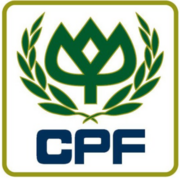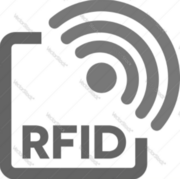Hi,
I read a chilling article today about slavery that still exists in Asian countries.
This particular article was referring to the Global Slavery Index which claims up to 300 Thousand slaves work in the Thai seafood industry on vessels catching a lot of the Prawns, tuna and trash fish (small inedible fish used for livestock & fish feeds) that is exported to Europe & USA.
These poor people are lured from poor Asian countries like Myanmar, Cambodia and Laos with false promises about real paying work. When they arrive their identification is taken off them and they are forced to work extremely long hours in appalling work conditions with little food or sleep. Their reward at the end? Either thrown back into their country of origin pennyless or throat slit and thrown overboard.
The latter is a common solution for any slaves that dare get too ill to work or become "high maintenance."
After reading this, my first emotion was anger that the Thai government could allow this to happen but I also felt a sense of de ja vu like I'd read this before.
A quick google search shows that they have been writing about this for years in the media and the dam barbaric practise still happens to this day.
The European and US governments have been warning the Thai government for a long time that this practise is happening under their noses and whilst arrests have been made, little head way overall has been made.
It seems officials or people of power in that industry are still accepting bribes to look the other way.
It is important to note that the Thailand Government does not condone these actions and they are still a developing country themselves but this is happening all the same, that is the sad fact.

-Media like the Guardian have alleged Charoen Pokphand Foods (CP FOODS) of purchasing sea food obtained by fishing boats manned with slaves. -
Enter the Blockchain.
A London based company, NGO Provenance has developed technology that uses the Blockchain to trace this seafood from the moment it is caught to its arrival in local supermarkets. It is called "bait to plate" and it will enforce all big fishing vessels right down to local fisherman in Thailand, to have an RFID tag (Radio Frequency Identification tag) attached.
These fisherman would then use handheld devices to upload information onto the cloud.
The information is then stored in NGO Provenance's Blockchain ledger meaning anyone can trace the journey of any individual fish from the moment it was caught right up to arriving on their dinner plate.
This tech will make the industry easier to police and thus make it easier to hold the Thai Government in this instance or whatever Government it happens to be more accountable.
They hope to take the tech a step further and make it compulsory that all migrant workers have wearable tech that would record biometric data, their workplace agreement/contract, their payment and their location.
This would eradicate the slavery problem, as not only would the Thai government in this instance be responsible for ensuring anyone working in the industry employs this tech, but also any fish caught that is not recorded on the Blockchain would be illegal to sell.
Sure they could still find a domestic blackmarket for it but with no big USA, European or even legitimate domestic supermarket buyers, it heavily diminishes the financial value of engaging in this nefarious activity.
The Blockchain assisting in this sort of scenario could be played out all over the world in any "dodgy" industry where criminal behaviour is involved or just any industry that is exploiting people full stop.
So whether it be Nepalese workers building stadiums for the World Cup, African mine workers, South America ones, you name it. It can ensure a "fair go" for everyone.
Obviously this technology will come at a cost but these companies, organisations or small fisherman are making money from selling their produce or their catch.
They would simply have to purchase and use this Blockchain tech as a cost of doing business.

-A report by the Guardian claims 185 Nepalese workers have lost their life working on the Qatar Stadiums for the World Cup. If this is true their work conditions are obviously horrendous and they at the very least should have the bloody thing taken away from them. I'm sure the UK or USA could host it at short notice. -
They will no doubt up their prices to account for the cost of employing this tech, which yes means importers pay more, which in turn means the supermarket pays more, which then ultimately means the customers like you and I pay more for our Tuna or our prawns but who cares.
So be it. If you buy products from an industry that ships a product in from countries which could possibly be either exploiting foreign workers or keeping slaves, then you need to pay a little more.
If paying a little more means Blockchain technology can be employed to rid the world of this evil, than I think this is a great deal and I am sure everyone would agree.
I am wary of making this article too long but reading about this did spur me to look at some other ways the Blockchain can help humanity as a whole and their is a big list.
A brief look at a few other ways that caught my eye were:
Insurance - Allowing people in the developing world access to basic health insurance via the Blockchain.
People in developing countries just can not afford it, as it is commonly overpriced and the insurance industry is rife with fraud.
Running this service through the Blockchain would deter and help expose fraudulent practises ripping poor people off.
Humanitarian aid - Blockchain technology can also improve humanitarian assistance.
Dodgy local governments have been known to mismanage international funds raised, discriminate between who gets the help or just outright pocket it.
The Blockchain can ensure money intended to reduce poverty or improve education or health care is actually being used for that purpose and is helping people.
Sending money home - International workers sending money home like the Nepalese workers in Qatar for instance, can be forced to pay high fees.
In some instances African workers sending money home have been known to lose up to %20 in fees!
That is appalling and these people can not afford to be paying fees like this when they are just trying to feed their families. Not to mention the time it can take to get the money back to their loved ones.
The Blockchain will offer them a way to do this faster and cheaper.
A little bit of a more serious blog today, but reading that slavery article really angered me and I had to write about it.
I am really happy that the Blockchain can help provide the technology to help stop "the little guy" being taken advantage of and also indirectly making the world a safer place.
Certainly a fairer one.
Thanks for reading
- Dahmsy



Please mention links to said companies in the article, will be easy for readers.
Downvoting a post can decrease pending rewards and make it less visible. Common reasons:
Submit
Yeah I’m always a bit iffy on putting links up throughout the articles cause I read on some advice thing just to reference the name but not stick links in all through your piece but i tend to agree with u. It’d be easier
Downvoting a post can decrease pending rewards and make it less visible. Common reasons:
Submit
and newsbtc.com ran the story today to if you want to check it out. I read it through the cryptonews app which is worth a download to, thanks again
Downvoting a post can decrease pending rewards and make it less visible. Common reasons:
Submit